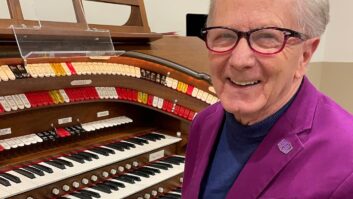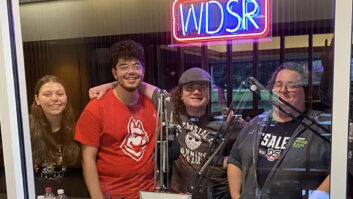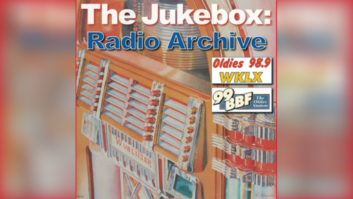
KROQ’s Kevin & Bean participate in April Foolishness 2014, an example of their passion for their job and for the music. I met a hardcore Bruce Springsteen fan yesterday. She expressed to me that the best gift her husband of two decades has ever given her was a pair of tickets to see Bruce and the boys in concert when they came to town.
Without prompting, she then gave me an update on the latest Springsteen news and wanted to hear pretty much anything I had to say about his career and music going back to 1973.
After offering what meager stories I could, we started discussing other bands. She lit up the room with her enthusiasm, and I immensely enjoyed hearing her passion for music and watched as others entered the conversation with excitement.
This encounter prompted me to remind you that it’s time to have your annual conversation with on-air talent about this subject. Springsteen aside, this concerns passion for music.
If you’re managing a music station, I hope you’re blessed with air talent who live and love the music you’re broadcasting. If they truly love the product, it makes your job as a manager easier to help them connect with your audience.
The reality is that experienced DJs are often past the stage of initial musical fascination, and we must remind them regularly that the foundation of a music station is — contrary to what they may feel — not themselves as performers, but the music and artists they are playing.
Sounds simple enough, I know; but communicating passion takes effort, planning and, most importantly, awareness.
RE-ENGAGE
Awareness about musical passion wears off with time. To awaken the Sleeping Beauty of musical passion, you must re-engage with live performance at shows, talk about the subject with those most involved and stay on the cutting edge of cultural news regarding your particular form of music.
Voice tracking a few shows daily on various stations with no other kind of engagement will not cut it over time.
Need to reminisce about what passion for the product sounds like? Try the BBC’s 6 Music or any of their other channels, which you can stream on your phone or laptop. It’s so palatable that it will make you want to send the host a text or email just let him know that you’re listening, and maybe even “have your say” (as the British intone in their media) that you agree or disagree with the assessment they’re making about the bands they’re playing.
In part, managers can also set up on-air talent for success by scheduling features. Example: Have talent review releases, whether they are whole albums or individual songs, then deliver a 20-second review on-air and direct listeners to your website to read a written piece or watch a video (which could simply be shot on a camera phone). Ask your audience to participate and then communicate their reviews back on-air and online, creating a total passion feedback loop.
Another great feature is having an audience relive their favorite shows. They text you a time-limited audio review they record on their own phone and you can edit the piece and play it back along with the songs they’re talking about on it. These bits can comprise anything from releases or shows from this past week to those from 20 years ago.
What matters is the relevancy to your format and the passion they can help you express on-air.
Another handy tool you must provide your talent is daily information about your core artists. If talent is too busy or too lazy to look it up, a great PD should have news about that format’s top 50 artists easily accessible. This can be accomplished through an old-fashioned printout and by setting up RSS feeds to be accessed by talent.
MAKE CONVERSATION
Find out what bands your talent enjoy in your format. Get comps or buy the talent tickets on a regular basis. Do not assume they will pull out their own wallets as often as you need them to in order to stay musically connected. Reality check: Concerts are expensive, and radio doesn’t always pay so well!
When you have staff meetings with talent, always allow time to discuss your station’s music and artists. This conversation should be informal and steered by the PD to get everyone pumped about your mission to entertain, engage and ignite the passion in every single audience member.
The unfortunate alternative to expressing love for music is the creation of a boring broadcast music jukebox that will have difficulty competing with iTunes, Pandora and Spotify in the long run.
Passionate broadcast radio equals excitement — and success.
The author is president of Lapidus Media and a longtime contributor. Email him via [email protected].












